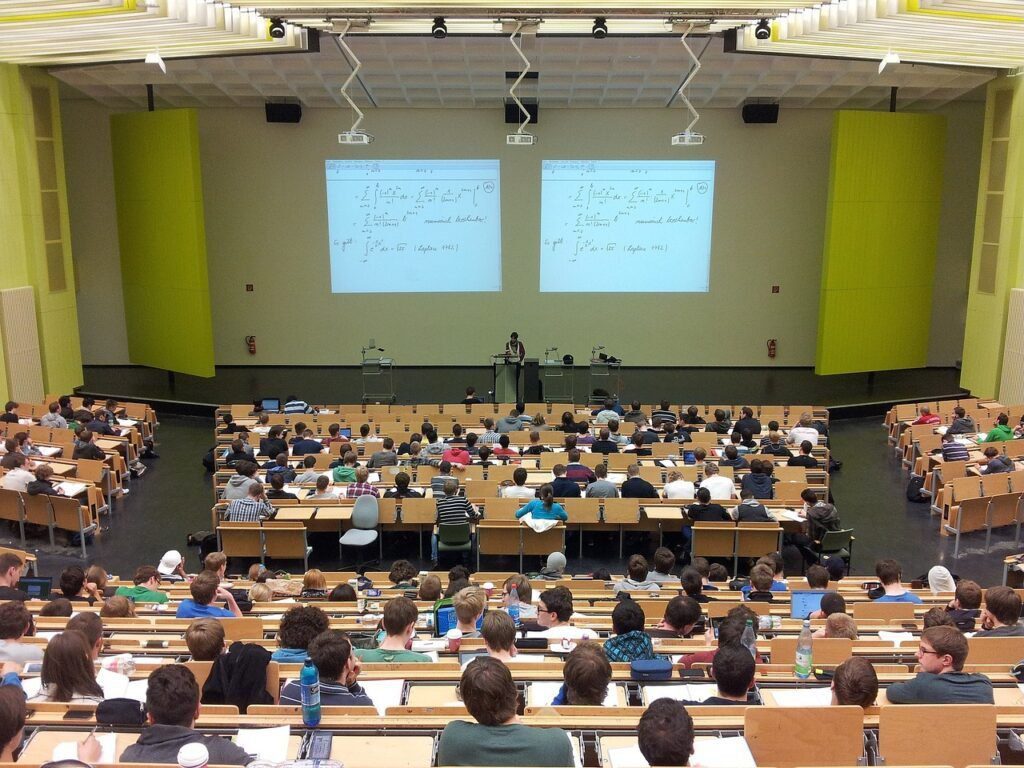In 2025, the climate crisis is no longer a distant threat discussed in science textbooks—it is a living reality reshaping everyday life. Wildfires, floods, food insecurity, and extreme weather events are now part of students’ lived experiences, from California to Kerala. As a result, schools around the globe are undergoing a radical curriculum transformation, integrating climate literacy, environmental science, and sustainability practices into mainstream education.
This shift toward eco-education marks a major evolution in how we prepare the next generation—not just academically, but ethically and civically. Nations are rethinking what it means to be educated in a world that is being reshaped by climate change. From project-based learning and green infrastructure design to farming simulations and carbon audits, today’s students are no longer passive learners—they are climate-literate agents of change.
This article explores how the climate crisis is reshaping education globally, what innovations are leading the charge, and why eco-education is no longer optional—it’s essential.
Why Traditional Curriculums Are Failing
For decades, environmental studies were confined to a few chapters in science textbooks or offered as optional electives. But this model is proving obsolete. Here’s why:
- Irrelevance to Real-World Challenges: Traditional content often fails to address the urgency, complexity, and lived impacts of climate change.
- Lack of Skill-Based Learning: Students are not taught actionable sustainability practices like waste management, regenerative farming, or green tech design.
- Absence of Systems Thinking: The climate crisis is interconnected with economics, politics, health, and technology—silos in traditional education don’t equip students for that.
- Youth Anxiety & Eco-Grief: Rising levels of climate anxiety among students are not being addressed through education or emotional support systems.
This has led to a global demand for climate-responsive education systems that are bold, immersive, and interdisciplinary.
What Is Eco-Education in 2025?
Eco-education refers to a reimagined learning model where climate science, sustainability, and environmental ethics are woven throughout every subject, project, and school culture. It includes:
- Mandatory climate literacy by age 12
- Hands-on sustainability projects
- Renewable energy integration in schools
- Circular economy simulations
- Urban gardening and permaculture labs
- Carbon footprint assessments as part of grading
- Cross-subject climate context in history, economics, and literature
In many countries, eco-education is no longer a subject—it’s a framework through which all learning is filtered.
Global Examples of Eco-Curricular Reform
🇸🇪 Sweden – Climate Across Subjects Mandate
Starting in 2023, Sweden made it compulsory for every subject—including language, art, and history—to incorporate climate-related themes. For example:
- Math problems include real-world emissions calculations
- Literature includes eco-fiction and environmental memoirs
- History examines industrialization through a climate justice lens
🇮🇳 India – National Curriculum Overhaul (NEP 2020 + Green Ed 2025)
India’s education ministry launched Green Ed 2025, an update to the National Education Policy that mandates:
- Sustainability labs in schools
- Local ecosystem projects
- Indigenous environmental knowledge in textbooks
- Carbon-neutral campus initiatives
🇨🇴 Colombia – Amazonian Youth Guardians Program
Rural schools in the Amazon region now teach students how to protect and restore their local ecosystems using drones, AI mapping, and community knowledge.
🇳🇿 New Zealand – Te Ao Māori Environmental Literacy
Schools have adopted indigenous Māori perspectives on ecology and stewardship, integrating traditional land knowledge with modern conservation science.
Curriculum Innovations in Eco-Education
- Project-Based Climate Action
Students don’t just study the climate—they solve local problems.
Examples:
- Building vertical gardens on school walls
- Mapping water leaks and proposing conservation plans
- Creating zero-waste lunch programs
- Designing eco-fashion from recycled materials
- Tech-Powered Sustainability Labs
Schools use AR, VR, and simulation platforms like EcoRise, Labster, and Tinkercad to let students:
- Build 3D models of wind turbines
- Simulate food chain collapses
- Run virtual ecosystems and test sustainability strategies
- Carbon Scorecards and Climate Portfolios
Like report cards, students receive a “carbon impact score” based on behavior, participation, and project output. Portfolios showcase:
- CO₂ saved
- Plastic reduced
- Composting or gardening contributions
- Advocacy and public awareness campaigns
- Eco-Entrepreneurship Modules
Students learn how to create green startups or social innovations:
- Clean tech business models
- Water conservation apps
- Plastic bank systems for community recycling
- AI-based wildlife protection solutions
Mental Health and Climate Resilience
One of the most overlooked aspects of eco-education is the emotional burden students carry. Climate anxiety—a chronic fear of ecological doom—is now recognized by the WHO as a real mental health issue.
Schools in 2025 address this by:
- Integrating mindfulness and eco-grief therapy
- Offering counseling and peer support groups
- Celebrating climate victories, not just threats
- Teaching adaptive optimism and resilience strategies
The goal is to empower, not paralyze.
What Skills Are Being Taught Through Eco-Education?
| Traditional Skills | Eco-Education Additions |
|---|---|
| Reading & Writing | Climate journalism, persuasive advocacy |
| Math | Environmental data analysis, emissions modeling |
| Science | Renewable energy systems, biodiversity tracking |
| Social Studies | Climate policy, sustainability ethics |
| Business | Circular economy, green startups |
| Arts | Eco-storytelling, climate protest art |
These skills prepare students for green jobs, civic leadership, and sustainable living.
How AI and EdTech Are Enhancing Eco-Education
AI and immersive technologies are accelerating climate learning like never before.
- ChatGPT helps students brainstorm eco-campaigns or write persuasive letters to lawmakers
- ElevenLabs is used to create climate podcasts in multiple languages
- RunwayML powers climate storytelling through generative video
- Google Earth VR allows virtual eco-expeditions across threatened landscapes
- AI tutors personalize climate learning paths based on region, age, and learning style
These tools make climate science engaging, scalable, and accessible globally.
What the Future Holds
By 2030, many experts predict that:
- All students globally will undergo minimum 3 years of climate-centered education
- Universities will rank students based on climate impact portfolios, not just GPAs
- Eco-literacy will be as essential as math or language fluency
- “Carbon Literacy” certification will be required for leadership roles in corporations, government, and media
The movement is clear: education must not just prepare students for the future, it must prepare them to save it.
Final Takeaway
Eco-education is not a trend—it’s a necessary evolution in a world facing ecological collapse. In 2025, schools aren’t just centers of academic growth—they’re becoming labs of climate leadership. With every recycled project, every data-informed decision, and every empowered voice, students are helping turn back the clock on climate devastation.
Education, at its best, doesn’t just reflect the world—it rebuilds it. In the age of crisis, learning must become an act of environmental resistance, empathy, and innovation.
The classroom of tomorrow is green, global, and grounded in action.


